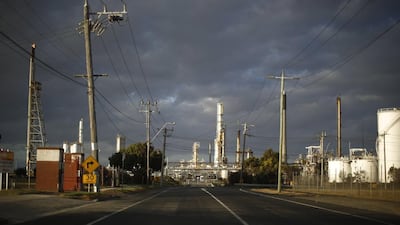The world’s big government owned investors went on a spending spree in the first half of the year, with the total value of transactions by sovereign wealth funds (SWFs) nearly back at levels recorded in late 2008, just before the global economic crisis hit in earnest.
According to research by the Sovereign Wealth Fund Institute, a US-based think tank, direct deals and transactions by SWFs reached $50.02bn in the first six months of the year, up 23 per cent on the same period in 2013.
The record level previously recorded by the SWFI was $51.05bn for the first six months of 2008. The institute points out, however, that the first half 2008 figure included some of the early measures taken by governments to mitigate the effects of the credit crunch through state spending.
“A significant proportion of that amount [the $51.05bn recorded in early 2008] was attributable to the bailouts,” the institute said.
The new figure represents a vote of confidence by the SWFs in the global economic recovery, which has gradually gathered momentum since the crisis. Many of the world’s equity markets showed record performances in the early part of this year, with some getting back to pre-crisis levels.
The rush to business by SWFs was led by Singapore, which led the pack with $21.21bn worth of deals in the first six months of the year. The UAE, which has some of the world’s biggest state-owned investors thanks to its energy revenues, came second, followed by China, on its way to becoming the biggest economy in the world.
Among the biggest deals in the half was Singapore’s $5.7bn acquisition of a 25 per cent stake in the Hong Kong-based health and beauty products retailer AS Watson.
The institute also highlighted the joint purchase of Royal Dutch Shell’s assets in southern Australia by the Dutch oil company Vitol and the Abu Dhabi Investment Council.
The financial sector remained the biggest single target for investments via SWFs, with deals in banks and other financial institutions totalling $9.03bn in the six-month period.
The leading advisers to SWFs (and other public investors such as state pension funds) in their transactions were Goldman Sachs, Credit Suisse, Deutschebank, HSBC, Bank of America Merrill Lynch and Morgan Stanley, the institute said.
Many of the biggest state-owned investors have targeted Asian and other emerging markets in their recent investment strategies.
In its annual review, the Abu Dhabi Investment Authority, one of the world’s biggest funds, reaffirmed its commitment to emerging markets.
“Global economic growth will increasingly be sourced from emerging economies,” said Sheikh Hamed bin Zayed, Adia’s managing director. “The developed world will gradually repair the damage wrought by the financial crisis, and fears of a relapse into crisis will give way to an understanding of the likely contours of a new economic expansion.”
fkane@thenational.ae
Follow The National's Business section on Twitter

